5. Attention to personal conduct & Huqooq-ul-Ibaad (Rights of people)
Ramadan is a month which is blessed only for those who make use of it. Otherwise it is only a month like any other month for those who make no use of the bounties it comes laden with. Ramadan is a month where we focus on improving our personal conduct. We try to control our anger, protect our tongues from gheeba, cursing, useless talk, name calling and other debilitating diseases. We protect our eyes and ears from looking at and listening to whatever Allah  prohibited. Let us make the intention to use this blessed month to make these good habits permanent.
prohibited. Let us make the intention to use this blessed month to make these good habits permanent.
Gheeba, cursing and useless talk don’t become halal after Ramadan. Let us remember that we are role models for all those who come into contact with us. Let us reflect on what kind of role model we want to be.
Allah  says about these things:
says about these things:
Keep supporting MuslimMatters for the sake of Allah
Alhamdulillah, we're at over 850 supporters. Help us get to 900 supporters this month. All it takes is a small gift from a reader like you to keep us going, for just $2 / month.
The Prophet (SAW) has taught us the best of deeds are those that done consistently, even if they are small.
Click here to support MuslimMatters with a monthly donation of $2 per month. Set it and collect blessings from Allah (swt) for the khayr you're supporting without thinking about it.

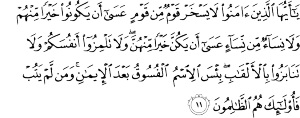

The Believers are nothing but brothers (in Islam). So make reconciliation between your brothers, and fear Allah, that you may receive mercy. O you who believe! Let not a group scoff at another group, it may be that the latter are better than the former; nor let (some) women scoff at other women, it may be that the latter are better than the former, nor defame one another, nor insult one another by nicknames. How bad is it, to insult one’s brother after having Faith [cursing, swear words.] . And whosoever does not repent, then such are indeed Zalimun (oppressors).O you who believe!
Avoid much suspicion, indeed some suspicions are sins. And spy not, neither backbite one another. Would one of you like to eat the flesh of his dead brother? You would hate it (so hate backbiting). And fear Allah  . Verily, Allah is the One Who accepts repentance, Most Merciful. (49: 10-12)
. Verily, Allah is the One Who accepts repentance, Most Merciful. (49: 10-12)
Major matters concerning the rights of people are self-evident so I won’t mention them here. But what about our social lives? We know backbiting is haram yet we don’t stay away from it. Remember that to say something factual but uncomplimentary about someone in their absence is backbiting. To say something about someone that is not true is slander, which is even worse. Both are not only sins and punishable before Allah  , but actually result in your good deeds going into the account of someone you hate. That is why Imam Bukhari is reported to have said, ‘If I wanted to backbite, I would say something about my mother because at least my good deeds would go to her.’ Let us beware of this fatal disease which results in the destruction of brotherhood. It is strange that Muslims like to talk about building the Ummah and the importance of unity, but they don’t hesitate to backbite, insult, criticize and slander each other. So how is this Ummah going to be built if there is no love, no forgiveness, no compassion for our brothers and sisters?
, but actually result in your good deeds going into the account of someone you hate. That is why Imam Bukhari is reported to have said, ‘If I wanted to backbite, I would say something about my mother because at least my good deeds would go to her.’ Let us beware of this fatal disease which results in the destruction of brotherhood. It is strange that Muslims like to talk about building the Ummah and the importance of unity, but they don’t hesitate to backbite, insult, criticize and slander each other. So how is this Ummah going to be built if there is no love, no forgiveness, no compassion for our brothers and sisters?
6. Attention to reflection and self-correction
Finally, Ramadan is an opportunity to take stock of our lives, to reflect on what we have been doing and what we should have been doing. In Ramadan we take time out for extra worship. Most people at least pray Taraweeh. Let us pray that with peace and equanimity, not hurrying the Imam to recite fast and violate the Qur’an. To recite fast without adhering to the rules of Tajweed alters the meaning of ayat and, in some cases, may nullify the salah itself. Even when it doesn’t nullify the salah it is a grave misconduct and a sin to deliberately recite the Qur’an without the respect that is due to it.
Allah  specifically prohibited fast recitation and said:
specifically prohibited fast recitation and said:

Move not your tongue concerning (the Qur’an, O Muhammad) to make haste therewith. (75:16)
In Ramadan we also have that greatest of benefits, Itikaaf. This is a very important sunnah of Rasūlullāh and is a means for us to get close to Allah
and is a means for us to get close to Allah  and to have our du‘ā’s accepted. Let us use Itikaaf in its true sense as a time to spend in solitude, silence, contemplation, studying the Qur’an and Sunnah and in worship. Let it not become an opportunity to hang-out with friends, spend time in lazing around, idle talk, overeating and other pointless activities. Let us make contemplation, study and reading and reflecting on the Qur’an, sunnah and seerah and correcting our lives the object of Itikaaf. Let Ramadan be a means for us to re-engineer ourselves so that we become the inheritors of Jannah.
and to have our du‘ā’s accepted. Let us use Itikaaf in its true sense as a time to spend in solitude, silence, contemplation, studying the Qur’an and Sunnah and in worship. Let it not become an opportunity to hang-out with friends, spend time in lazing around, idle talk, overeating and other pointless activities. Let us make contemplation, study and reading and reflecting on the Qur’an, sunnah and seerah and correcting our lives the object of Itikaaf. Let Ramadan be a means for us to re-engineer ourselves so that we become the inheritors of Jannah.
As I said, it takes 21 days to change a habit and establish a new one. Allah  gave us 30. Let us make the best use of those days so that when we stand before Allah
gave us 30. Let us make the best use of those days so that when we stand before Allah  we will be able to stand with honor as His favorite slaves – as His Awliya.
we will be able to stand with honor as His favorite slaves – as His Awliya.
I ask Allah  to forgive us all and enter us into His mercy. Ameen.
to forgive us all and enter us into His mercy. Ameen.
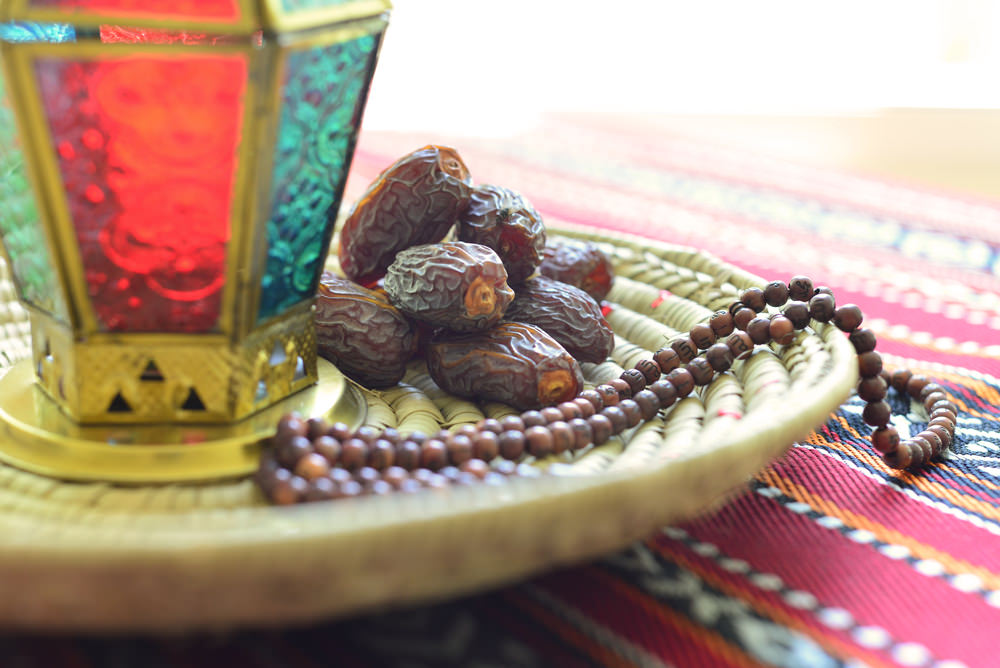
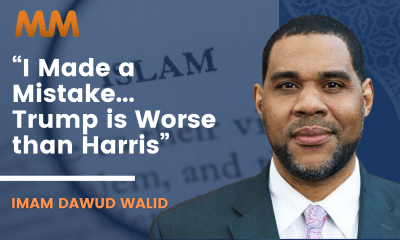
 #Current Affairs4 weeks ago
#Current Affairs4 weeks ago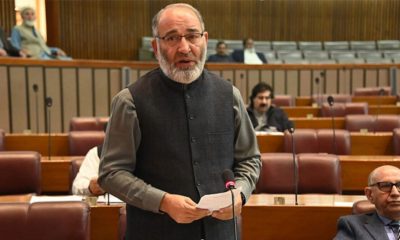
 #Current Affairs1 month ago
#Current Affairs1 month ago
 #Culture1 month ago
#Culture1 month ago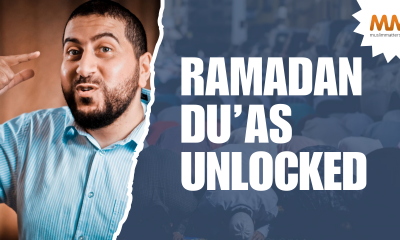
 #Islam3 weeks ago
#Islam3 weeks ago
 prohibited. Let us make the intention to use this blessed month to make these good habits permanent.
prohibited. Let us make the intention to use this blessed month to make these good habits permanent.


 and is a means for us to get close to Allah
and is a means for us to get close to Allah 













Khadijah
June 30, 2014 at 5:28 PM
Please email
Me you posts. khadijahdavies@gmail.com
Hena Zuberi
June 30, 2014 at 6:25 PM
Sr Khadijah, you can sign up for our newsletter here http://muslimmatters.org/subscribe-muslimmatters-biweekly-newsletter/
Talibeilm
July 1, 2014 at 10:07 PM
Ma sha Allah, tabarakallah… beautifully written. May Allah ta’ala give us the tau feel of implementing it. Ameen.
Pingback: In the Name of Allah… | Lady Khadija